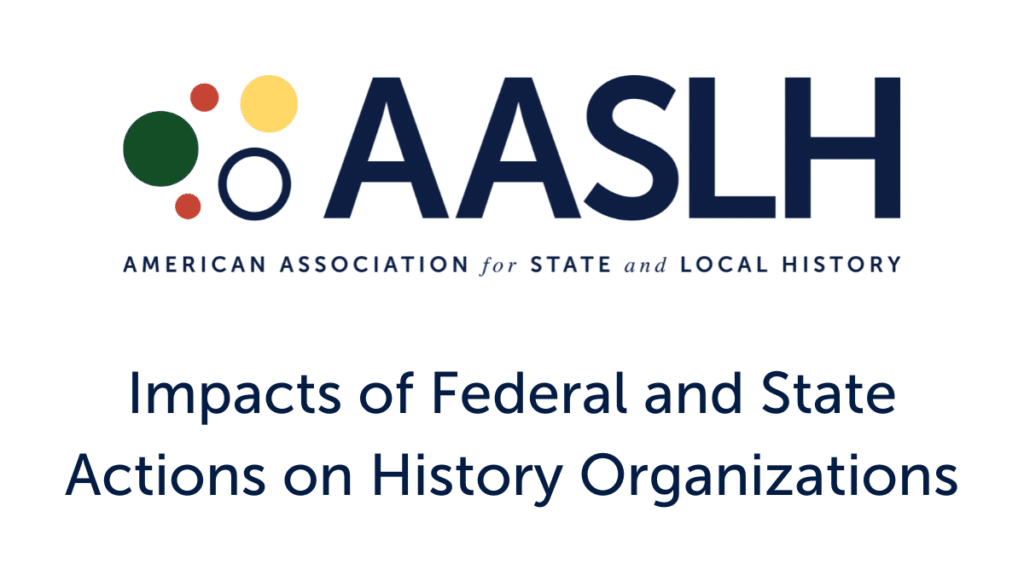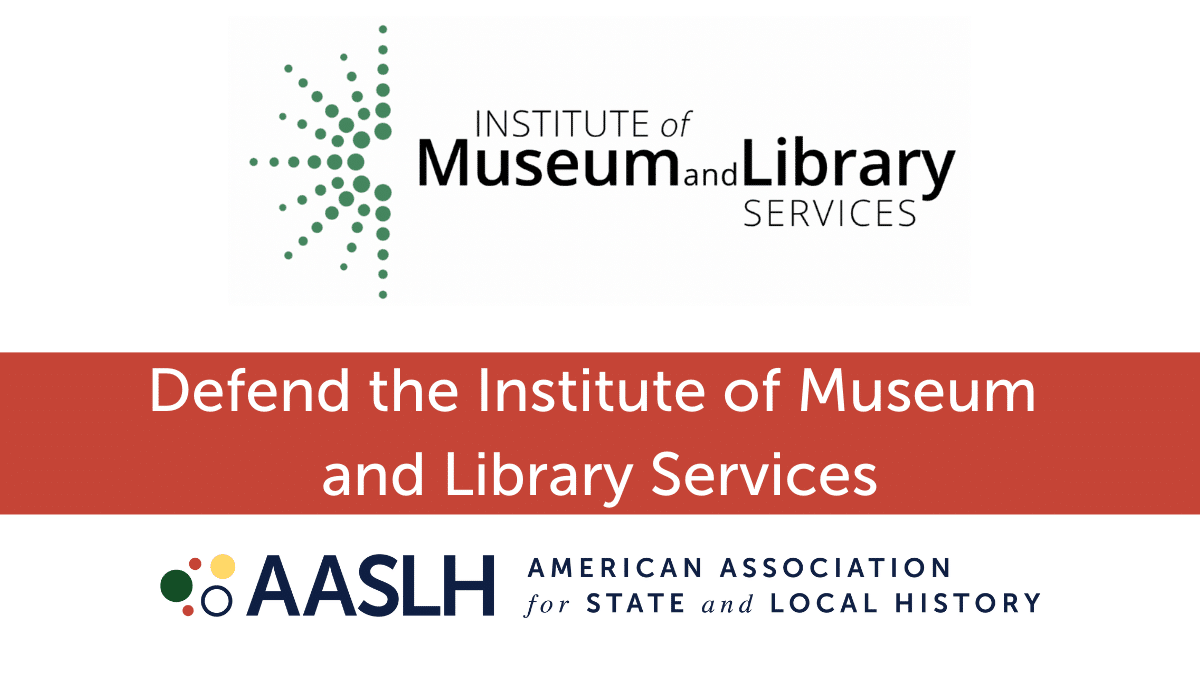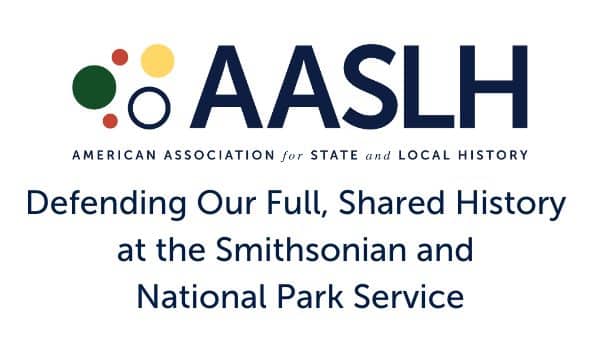Recent federal and state actions are creating a difficult and uncertain environment for the history field. With your help, AASLH is gathering examples of the impact on history organizations.
Has your organization also been impacted? We want to hear from you. Please share your story to help AASLH better understand—and draw attention to—the impact on the field of recent government actions related to history, education, and the workforce. Your response can be kept strictly confidential. We are asking for your email address in case AASLH staff want to follow up for more information. That field is optional.
Here are a sample of the responses we’ve received so far and that we have permission to share:
Staff at Cass County Historical Society in Missouri are anticipating disruption to their Institute for Museum and Library Services funding in light of recent executive orders. The organization’s IMLS grant has enabled them to order preservation and archival materials and hire two interns to help process a backlog of donations. The historical society may also lose support it receives via the Freedom’s Frontier National Heritage Area (NHA), as funding for NHAs is at risk in the FY26 federal budget. The prospect of these sources of federal funding disappearing is lowering staff morale, imperiling the organization’s ability to serve its community, and risking the loss of the interns to more stable employment.
The Ridgewood Historical Society in New Jersey applied for federal grants through the Institute of Museum and Library Services and National Endowment for the Humanities for an ongoing inventory and improved access project. The project would benefit the numerous exhibitions, lectures, and other educational programs the institution offers as one of the community’s few sources of connection to local history and culture. With these federal grants uncertain and as the historical society is ineligible for state grants due to its small operating budget, the project is now at risk.
Christiansburg Institute, Inc., a small Black history museum and cultural heritage nonprofit in Virginia, is fully funded through grants from federal agencies, including the Institute of Museum and Library Services. If the recent executive order seeking to downsize IMLS stands, the Institute will be forced to shut its doors, risking the organization’s archival collection, putting five museum practitioners out of work, and closing the only Black history museum in their county.
The 1816 Farmington Quaker Meetinghouse in New York is struggling to confirm the status of a National Park Service historic preservation grant the organization received for restoration of the historic site. The Meetinghouse is part of the proposed Harriet Tubman Underground Railroad Heritage Corridor—a route expected to drive heritage tourism and economic development—and will be unable to complete the restoration work without the NPS funding.
First State Heritage Park, a Delaware state park, relies on federal funding through partner organizations to make possible programs that reach thousands of people. These programs are now at risk. Executive actions against the National Park Service are similarly imperiling the historic site’s fourth-grade field trip event, which is supported by NPS and serves over 1,300 low-income students annually.
A state history agency reported that their state’s legislature is parroting the federal government and that the agency is now subject to a state-equivalent of the Department of Government Efficiency (DOGE). The agency reported that they have been required to remove all diversity, equity, and inclusion-related language from their website. The agency’s employees have also been called back into the office full-time without cost-of-living increases or accomodations.
Updated March 31, 2025




